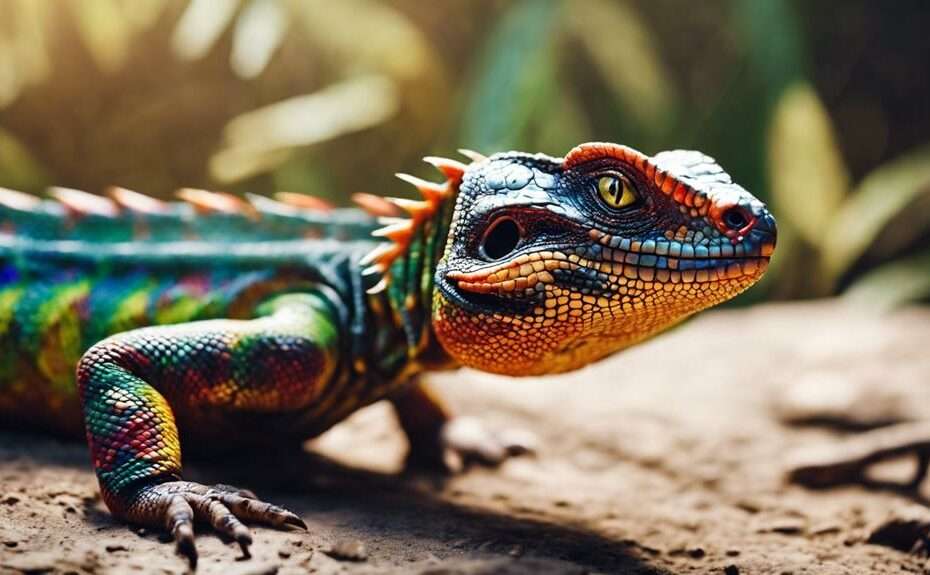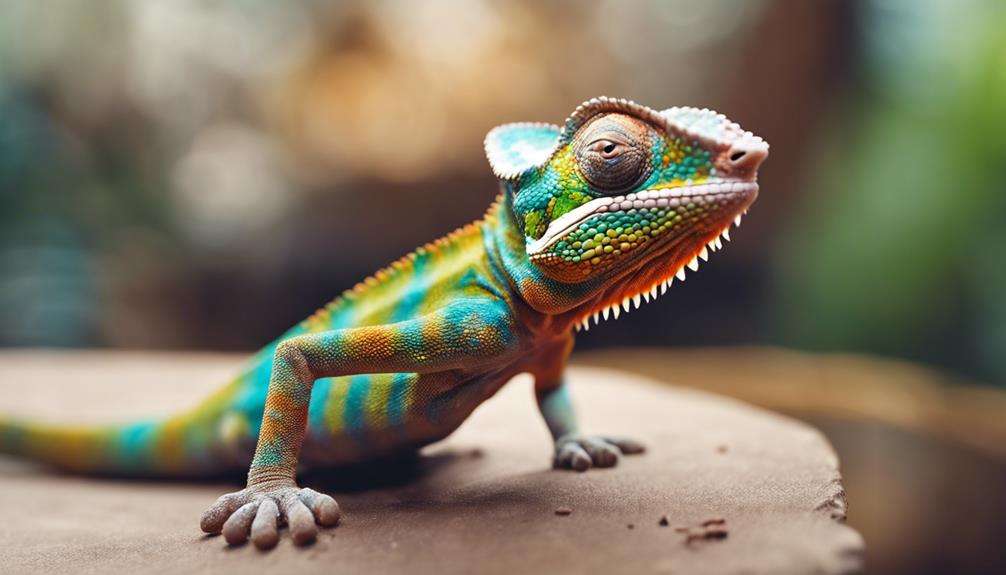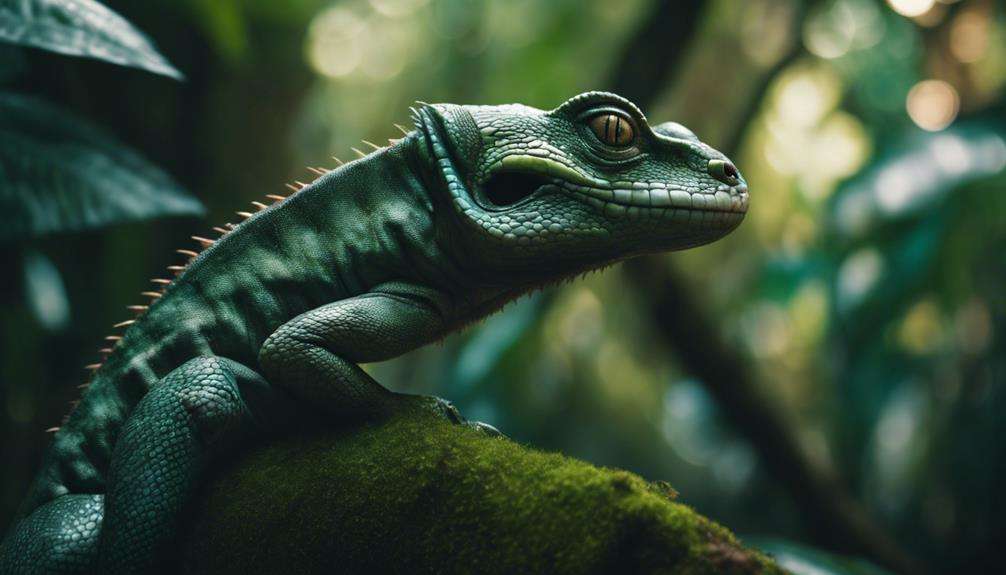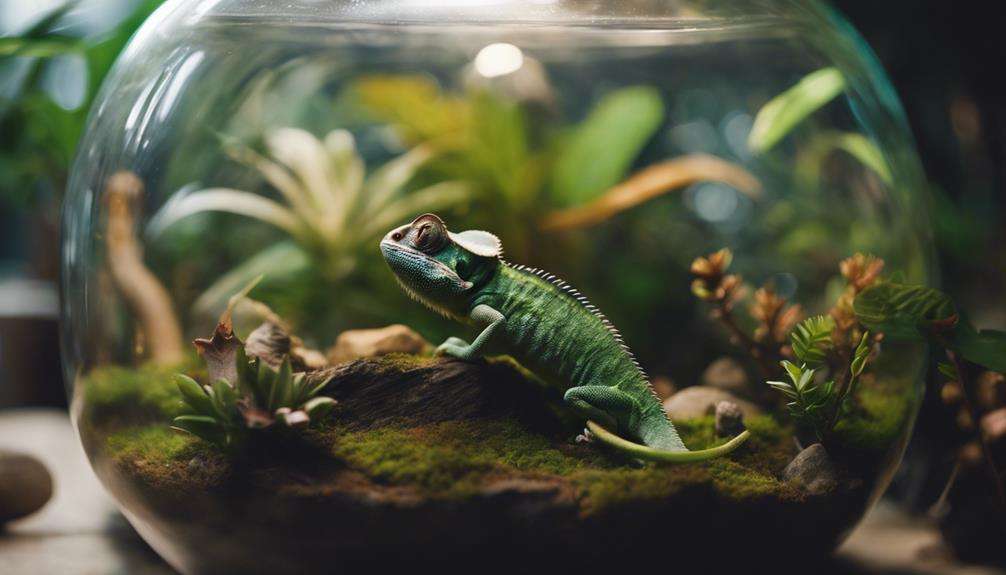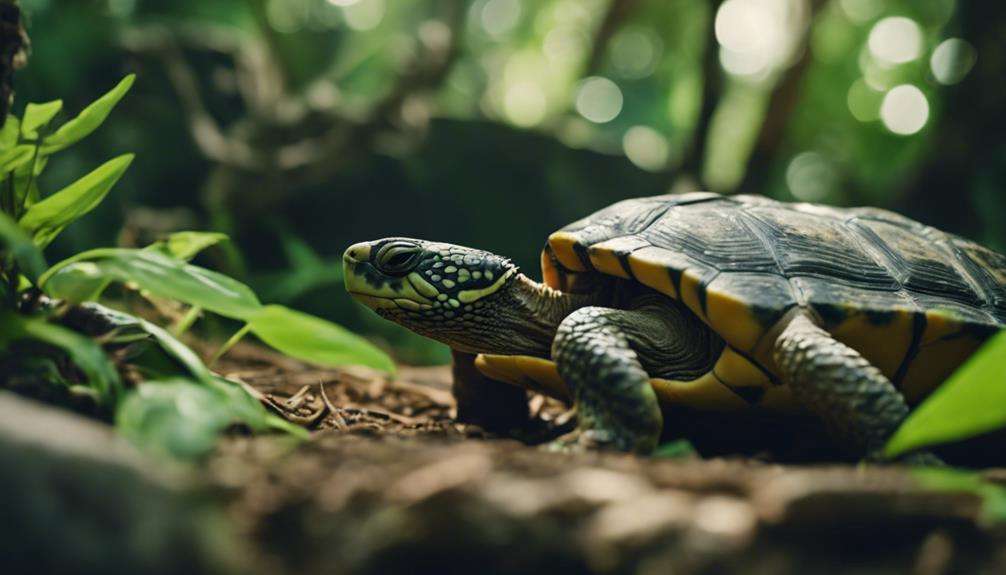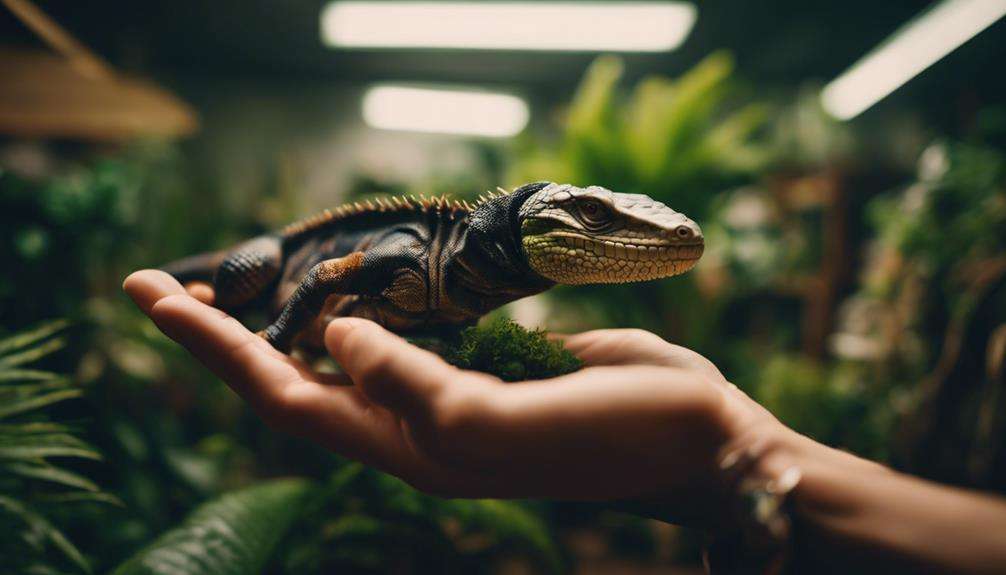If you're pondering whether to venture into breeding rare reptiles, it's akin to unlocking a hidden treasure chest in the realm of exotic pets.
The allure of working with these unique creatures goes beyond mere fascination; it opens doors to a world where every successful breeding is a triumph and each hatchling a marvel.
As you navigate the complexities of breeding rare reptiles, the rewards can extend far beyond what meets the eye.
Key Takeaways
- Breeding rare reptiles aids in conservation by increasing population and genetic diversity.
- Rare reptile breeding offers financial opportunities with high market demand.
- Breeding rare reptiles provides educational insights into behavior and biology.
- Ethical breeding practices ensure species preservation and genetic diversity.
Conservation of Rare Reptile Species
Breeding rare reptiles plays a crucial role in the conservation efforts of endangered species, aiding in population growth and genetic diversity maintenance. By actively participating in breeding programs, you directly contribute to the preservation of these vulnerable creatures. Through strategic breeding initiatives, you can help increase the numbers of rare reptiles, which in turn reduces the strain on wild populations. Not only does this assist in preventing further decline, but it also offers a lifeline against potential extinction.
Furthermore, breeding rare reptiles is essential for maintaining genetic diversity within these threatened species. Your involvement in captive breeding programs ensures that a wide range of genetic traits are preserved, making the populations more resilient to environmental changes and diseases. This genetic variation is crucial for the long-term survival of these species, as it provides them with the adaptability needed to thrive in their natural habitats. By breeding rare reptiles, you actively contribute to the broader conservation goals of protecting biodiversity and ensuring the survival of these magnificent creatures.
Financial Potential and Demand
With a growing market demand and potential for significant financial gains, rare reptile breeding presents a lucrative opportunity for entrepreneurs and enthusiasts alike. Breeding rare reptiles can be financially rewarding due to the high demand from collectors and enthusiasts. These unique creatures often command premium prices in the market, leading to increased profit margins for breeders. The limited availability of rare reptiles further drives up their value, making them highly desirable for those in the breeding industry.
One of the key factors contributing to the financial potential of breeding rare reptiles is the existence of unique morphs and color variations. These distinctive characteristics attract a niche market willing to pay top dollar for these exclusive specimens. For dedicated breeders who cater to these niche markets, breeding rare reptiles can create a sustainable income stream over time.
Contribution to Genetic Diversity
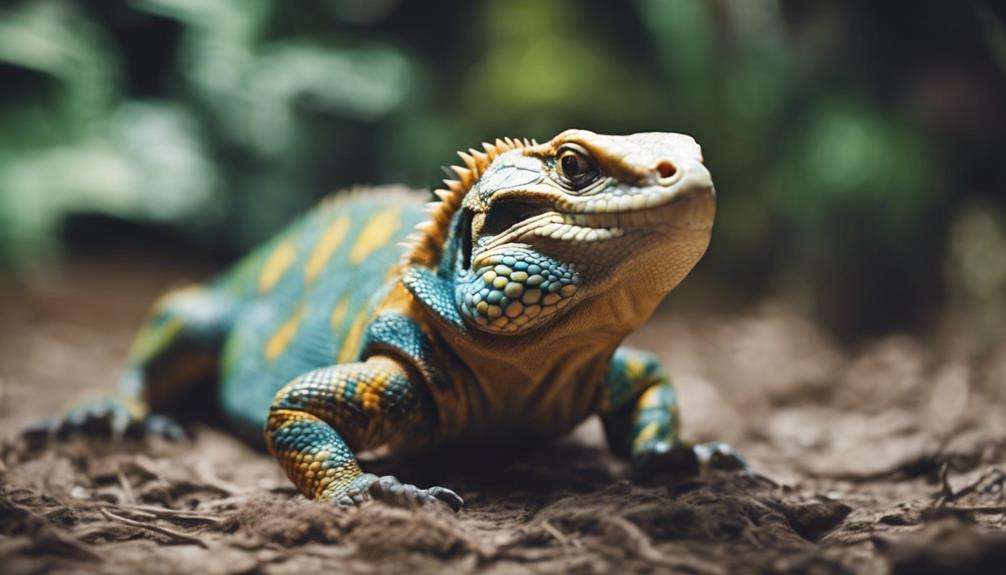
Breeding rare reptiles plays a crucial role in maintaining genetic diversity within species by preserving unique genetic traits and characteristics. These efforts help prevent inbreeding and genetic bottlenecks, promoting species resilience and long-term viability.
Conservation initiatives are greatly supported through the genetic variation that rare reptile breeding contributes to the overall population.
Genetic Variation Importance
Genetic variation plays a crucial role in ensuring the resilience and long-term survival of rare reptile populations. By breeding rare reptiles, you contribute to maintaining diverse gene pools, which are essential for enhancing the species' ability to adapt to diseases and environmental changes.
Limited genetic variation can result in inbreeding depression and reduced fitness, making it vital to preserve the unique traits found within these populations. Preventing genetic bottlenecks through breeding programs helps safeguard against the loss of valuable genetic diversity.
Through your efforts in promoting genetic variation within rare reptiles, you're actively supporting the overall health and sustainability of these fascinating creatures for generations to come.
Conservation Efforts Supported
Preserving genetic diversity through the breeding of rare reptiles is a vital component of conservation efforts aimed at ensuring the long-term survival and resilience of these unique species. By actively participating in breeding programs, you contribute to the conservation of these fascinating creatures and support genetic diversity, which is crucial for their survival in changing environments.
Some key ways in which breeding rare reptiles aids conservation efforts and genetic diversity include:
- Providing a genetic reservoir for future reintroduction programs.
- Helping prevent extinction and preserving unique genetic traits in endangered species.
- Directly contributing to safeguarding biodiversity and species conservation.
- Supporting the long-term resilience of rare reptile populations.
Educational Opportunities for Enthusiasts
As an enthusiast in breeding rare reptiles, you have the opportunity to learn through direct observation and hands-on experience. Witnessing unique behaviors and reproductive strategies can enhance your understanding of these fascinating creatures.
Learning Through Observation
Breeding rare reptiles offers enthusiasts a unique opportunity to expand their knowledge through firsthand observation of these fascinating species' behavior and biology. When observing rare reptiles during breeding, you can gain insights into their reproductive cycles, courtship rituals, and parental care behaviors.
Witnessing rare reptiles hatching provides a rare chance to observe the early stages of life in these species. By engaging in breeding rare reptiles, you can contribute to conservation efforts by understanding the breeding requirements and challenges of these species.
This hands-on experience fosters a deeper appreciation and understanding of these lesser-known species, promoting awareness and knowledge among enthusiasts.
Hands-On Experience Opportunities
Exploring hands-on experience opportunities in breeding rare reptiles offers enthusiasts a unique educational pathway to observe distinctive behaviors and reproductive processes up close. Working with breeding stock provides firsthand insights into genetics, breeding techniques, and species-specific care requirements.
Witnessing the hatching and growth of rare reptile species not only fosters a deeper understanding of their development but also contributes to conservation efforts by raising awareness about these unique creatures. By actively participating in the breeding process, enthusiasts can acquire invaluable knowledge about the intricacies of rare reptile reproduction.
This direct involvement allows individuals to gain practical skills while promoting appreciation for the beauty and importance of these species in the ecosystem.
Sharing Knowledge With Others
Enthusiasts engaging in breeding rare reptiles have valuable educational opportunities to share knowledge about unique species and their conservation needs with others. By participating in breeding projects, you can contribute to educational initiatives and conservation efforts in the following ways:
- Educating others about the specific habitat requirements, behaviors, and dietary needs of rare reptiles.
- Raising awareness about the importance of preserving biodiversity and protecting endangered species.
- Contributing to research efforts and scientific studies aimed at understanding lesser-known species.
- Inspiring appreciation and support for conservation initiatives for these fascinating creatures through sharing information and experiences.
Personal Fulfillment and Hobby
Engaging in the breeding of rare reptiles can offer a deeply satisfying and enriching personal hobby experience. When you participate in breeding programs for rare species, the joy of witnessing the hatching of first-time reptiles is unparalleled. The sense of accomplishment and wonder that comes from seeing these unique creatures emerge is truly rewarding.
As you build a connection with these rare reptiles, you develop a deeper appreciation for their beauty and importance. The act of contributing to the conservation of these species through breeding not only brings personal fulfillment but also serves a meaningful purpose in preserving biodiversity.
Additionally, working with rare reptiles provides a special opportunity to create unique morphs and variations, adding an exciting creative element to your hobby. Each new clutch of eggs holds the potential for incredible surprises, making the breeding process both captivating and fulfilling. Embrace the wonder of rare reptile breeding as a hobby that offers a blend of excitement, satisfaction, and personal growth.
Advancing Reptile Husbandry Practices
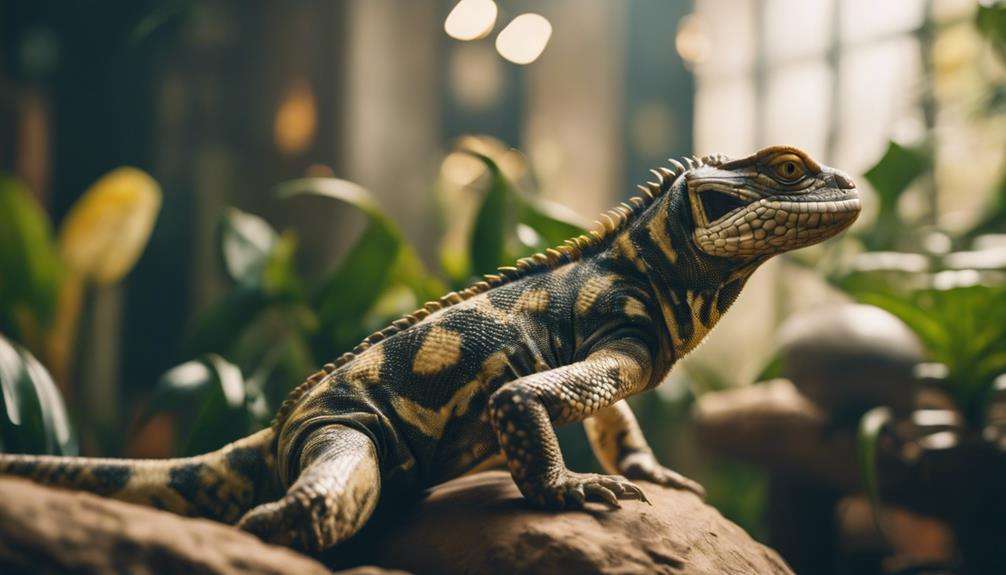
Breeding rare reptiles not only offers personal fulfillment but also plays a crucial role in advancing reptile husbandry practices by promoting conservation and genetic diversity. When it comes to geckos and other rare reptiles, breeding them can have a significant impact on the preservation of these species and the enhancement of husbandry practices.
Here are four ways in which breeding rare reptiles contributes to advancing reptile husbandry practices:
- Conservation: Breeding rare reptiles helps prevent the extinction of endangered species by increasing their population numbers in captivity.
- Genetic Diversity: By breeding rare reptiles, we can maintain and enhance genetic diversity within captive populations, which is essential for the long-term health and survival of these species.
- Research: Rare reptile breeding contributes to scientific research on species preservation and provides insights into their biology and behavior.
- Education: Breeding rare reptiles fosters awareness and appreciation for these unique species among enthusiasts and the general public, promoting conservation efforts and habitat protection.
Promoting Ethical Breeding Practices
Promoting ethical breeding practices is fundamental for ensuring the well-being and genetic diversity of rare reptile species. By adhering to ethical standards, breeders contribute to the preservation of endangered reptiles and their habitats. Responsible breeding not only supports conservation efforts but also fosters sustainability within the reptile trade.
Maintaining healthy populations through ethical practices is crucial in safeguarding rare reptile species from extinction. Breeders play a significant role in the long-term survival of these unique reptiles by prioritizing their welfare and genetic variability. Choosing to ethically breed rare reptiles is a conscientious decision that aids in the protection and propagation of these valuable species.
Frequently Asked Questions
Why Do People Breed Reptiles?
People breed reptiles for various reasons like conservation efforts and the pet trade. Breeding helps preserve genetic diversity and supports captive breeding programs. It also leads to the discovery of new morphs and color variations.
Is Breeding Reptiles Profitable?
Breeding rare reptiles can be profitable due to market demand and high prices. Investing in breeding can yield strong profit margins. With limited availability, exclusivity drives up value, attracting collectors and enthusiasts for unique morphs.
How Does Reptile Breeding Work?
When breeding rare reptiles, understanding reptile genetics is crucial. Pairing males and females strategically and utilizing proper breeding techniques can lead to successful outcomes. It involves egg-laying, incubation, and hatching stages, requiring dedication and expertise.
Why Are Reptiles Becoming Endangered?
Reptiles face endangerment due to habitat destruction, illegal trade, and climate change. Conservation efforts are crucial to protect these species. Breeding rare reptiles can contribute to their survival by increasing their numbers and genetic diversity.
Conclusion
As you reflect on the journey of breeding rare reptiles, remember that each clutch of eggs represents a new chapter in the story of conservation and passion.
Like a painter creating a masterpiece on a blank canvas, you're shaping the future of these unique creatures.
Embrace the challenges and joys that come with this endeavor, knowing that your efforts contribute to a brighter, more diverse world for both reptiles and enthusiasts alike.
Enjoy the adventure ahead!
